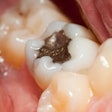
A U.S. proposed class action lawsuit claiming that Proctor & Gamble’s Oral-B Glide dental floss contains harmful manmade chemicals has been dismissed, according to an opinion recently filed in the U.S. District Court for the Southern District of New York.
U.S. Judge Nelson Roman granted Proctor & Gamble’s motion to dismiss the case, which had been filed by Alan Dalewitz, stating that the plaintiffs failed to show that the floss contained substances known as PFAS or that it harmed users. Dalewitz has until October 23 to file an amended complaint.
“The Court finds that Plaintiff has failed to allege a material misrepresentation of fact or omission because Plaintiffs has not plausibly alleged the Product contains PFAS or contributed to the body's burden of PFAS, therein causing harm,” Roman wrote in his opinion dated September 22, 2023.
PFAS can be found in numerous products, including cleaning agents, cosmetics, and water-resistant fabrics. They are known as forever chemicals because they don’t break down in the environment or in the human body.
Dalewitz filed the suit in August 2022 stating that he purchased Oral-B Glide in multipacks every six months believing the product was healthy because it was part of Oral-B's Pro-Health line of products. Dalewitz asserted in the complaint that he wouldn’t have bought the floss if he had known the product was associated with high levels of PFAS.
Furthermore, Dalewitz alleged that it was wrong to market the dental floss as pro-health when it contained PFAS. Specifically, Dalewitz claimed that Proctor & Gamble violated New York’s General Business Law, as well as a state law fraud claim.
The plaintiffs relied on one study that identified the PFAS polytetrafluoroethylene (PTFE) and perfluorohexane sulfonate as being linked to Oral-B Glide products. The study screened the dental floss for fluorine, which serves for the presence of PFAS.
“As such, the study concludes that ‘additional data’ is required to ‘verify’ that flossing with PTFE-based dental floss could contribute to an individual’s body burden of PFAs, ‘for example by’ demonstrating the potential for PFAs in floss to migrate into saliva or onto hands,” Roman wrote.
Additionally, the court was asked to infer that the floss “likely” contained forever chemicals and the types “likely” to cause adverse health outcomes, according to the opinion.
“Because Plaintiff has relied on attenuated inferences and unsubstantiated allegations as to the presence of PFAS in the Product and its contribution to the body's burden of PFAS, the Court concludes that Plaintiff has not plausibly alleged Defendant engaged in deceptive marketing practices,” Roman wrote.




















